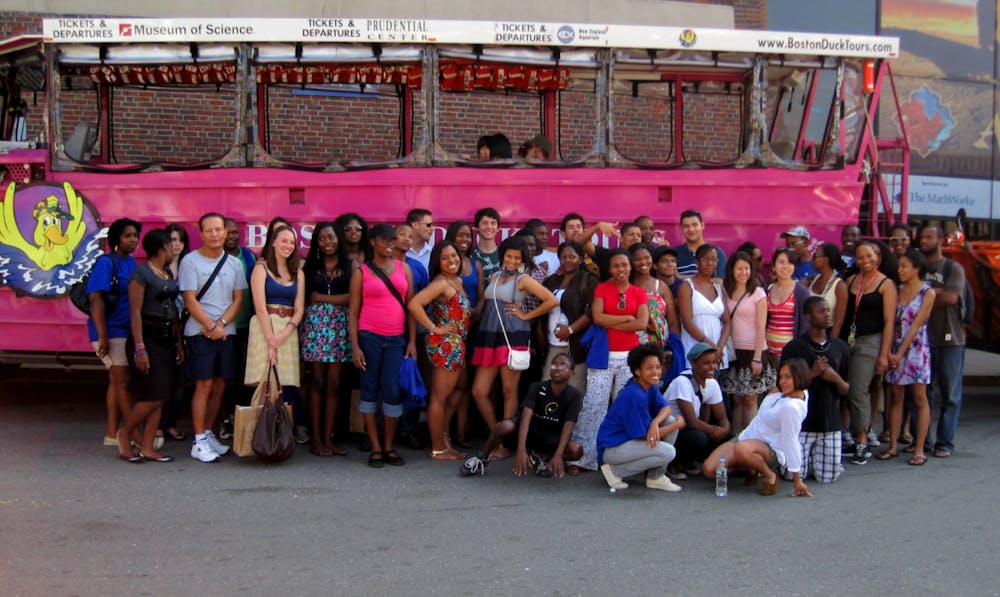The Mellon Mays Undergraduate Fellowship (MMUF) program centers on increasing representation from minority groups in arts, humanities and social science faculty of higher education institutions through “undergraduate research funding, mentorship, peer support and loan repayment for Ph.D. programs.” The program seeks applications from intellectually-engaged juniors and seniors pursuing research in one of the Mellon Mays-eligible fields.
Mellon Mays program focuses on building skills and community. According to the Duke MMUF website, “Mellon Mays fellows emerge from their experience at Duke as leaders, problem solvers, and members of an extensive community that spreads across the world.”
Professor Candis Watts Smith has served as the Duke MMUF Faculty Director since the summer of 2022. She is a Mellon Mays alumna. “This is just my way of paying it forward,” she said. When asked about what motivates her in this role, in addition to her teaching, research and administrative work, Smith said, “The students are deeply interested in their work. Their interest is contagious. They are united by their interest in doing research for knowledge's sake.”
As a word of encouragement to potential applicants, she suggested to simply give it a try and “let the process play out,” instead of doing an “early discount of their chances.” Students with an interest in doing research and going to graduate school – even if they do not know anything about research – are potentially strong candidates.
Maya Ghanem, a current Mellon Mays Fellow who is studying International Comparative Studies, with a focus on the Middle East, is conducting a research project on queer Muslim environmentalism. Ghanem cites MMUF as the “most rewarding part” of their academic experience at Duke. From the continued investment from faculty to the Fellows, to the strong bond and “unparalleled support” in the cohort, “every part of the fellowship has been immensely helpful,” they said.
“One of the most emotionally rewarding parts is the fact that we get to meet with all the fellows each week and talk about what [it means] to be doing research in an institution like Duke. How can we support each other? For students who are committed to research in social justice work, to have mostly underrepresented minorities in the program, it's a very unique space where you can hash out what [it] means to hold these identities here,” they said.
Ghanem also commented on the inspiration they gained from fellow MMUF scholars. “It's really interesting to see how they very clearly positioned themselves as intervening in the existing literature.” By “intervening”, they meant the act of each fellow actively contributing to the ongoing dialogue and addressing the gaps in their respective research topics. In the current MMUF cohort, these topics range from Ghanem’s queer Muslim environmentalism to intersectionality in the reproductive health gap, Black theater, Vietnamese American literature and Epistemology.
In the weekly meetings, Ghanem mentioned, fellows not only meet with each other and the Faculty Director, but also a host of other people at Duke who offer research and graduate school advice, including other Duke faculty, librarians, graduate students and graduate school admissions staff.
To students still considering applying, Ghanem said, “It's a great way to receive mentorship and to be in a community of like-minded people who are invested in you. It's a place that really encourages growth and figuring things out.”
At Duke, an affiliated member institution of the MMUF program, the application for the 2023-2024 cohort will close at 11:59 p.m. Feb. 28. More details can be found on the Duke MMUF website.
Get The Chronicle straight to your inbox
Signup for our weekly newsletter. Cancel at any time.
Katherine Zhong is a Trinity junior and local arts editor of The Chronicle's 119th volume.

